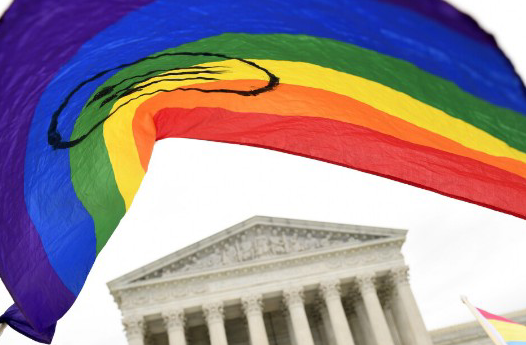
Two planned Biden administration Obamacare rule changes regarding gender transition procedures are expected to lead to major legal battles over transgender rights and religious freedom.
The administrative proposals, which could be finalized within months, come about a year after President Joe Biden took office promising to reverse Trump administration rules concerning sex and gender and to implement new anti-discrimination protections for transgender people.
The first is a notification issued by the Biden administration that it will update Obamacare civil rights provisions to clarify that prohibitions against discrimination on the basis of sex apply to sexual orientation and gender identity. Another would require that certain healthcare plans include coverage of gender transition procedures in certain circumstances.
The new measures put forth by the Department of Health and Human Services would be in the spirit of Biden’s day one executive order for combating discrimination on the basis of sexual orientation or gender identity. But religious liberty advocates say the policies are likely to infringe on conscience rights and predict that they will lead to major court battles.
“There’s gonna be massive conflict, like a crisis of conscience and religion for these organizations that don’t want to be complicit and participate in this,” said Rachel Morrison, a policy analyst at the Ethics and Public Policy Center, a conservative think tank.
Morrison said the proposals are likely to lead to intense litigation and become “Hobby Lobby 2.0” — a reference to the landmark 2014 Burwell v. Hobby Lobby Stores decision, in which the Supreme Court ruled that private companies could not be forced by an HHS regulation to pay for contraception for employees.
Gay and transgender rights advocacy groups, meanwhile, have celebrated the Biden administration’s efforts to expand anti-discrimination protections to cover transgender people.
“The medical understanding of the field of medical care for transgender people has been developing for many decades now, and we have a settled medical consensus of what types of care can be profoundly helpful for particular individual patients,” said Jenny Pizer, the law and policy director at Lambda Legal, an organization that offers legal representation to gay, lesbian, bisexual, and transgender people.
HHS did not respond on the record to requests for comment.
The first change from the Biden administration concerns Section 1557, the civil rights provision in Obamacare that prohibits discrimination based on race, color, national origin, sex, age, and disability in health programs and activities that receive federal funding.
The administration is seeking to clarify the meaning of sex discrimination to bring it into alignment with the Supreme court decision in Bostock v. Clayton County, in which the court ruled that employment discrimination on the basis of sexual orientation or gender identity is discrimination on the basis of sex.
Previously, the Trump administration had limited the definition of “sex” to mean biological sex, meaning that “sex discrimination” only applied when someone faced discrimination for being female or male and did not protect people against discrimination on the basis of sexual orientation or gender identity.
The second proposal pertains to essential health benefits, the list of services that Obamacare plans must cover. EHBs include doctors’ services, inpatient and outpatient hospital care, prescription drug coverage, pregnancy and childbirth, mental health services, and more. The administration proposed a rule meant to stop insurers from limiting coverage of EHBs based on gender identity in treating gender dysphoria — that is, emotional distress due to a disconnect between gender identity and biological sex — when clinical evidence demonstrates that such coverage is medically necessary for transgender people.
For example, if an insurer will cover hormone therapy to treat non-transition-related conditions, the plan must also cover the therapy for the treatment of gender dysphoria. Not doing so is presumptively discriminatory, per the proposed rule.
“The way that the rule reads is that health plans have to cover EHBs in a non-discriminatory way,” said Allison Hoffman, an expert on healthcare law and policy at the University of Pennsylvania law school.
The rule could apply in ways that would not be likely to raise religious liberty concerns. For example, it would require that an insurer that agrees to mammograms for biological women must also cover that service for transgender women, who are also susceptible to breast cancer.
But legal experts who specialize in religious freedom argue that the updated rule could amount to a mandate on insurers to cover transition procedures to which religious providers might object.
“Really, we’re talking about two legitimate concerns, right? You have a person in need of medical care, and you have a person who is in need of religious freedom protections, and that’s a really tough place to put anyone,” said David Callaway, a religious freedom specialist at the Freedom Forum.
While the proposed rule notes that HHS will “comply with laws protecting the exercise of conscience and religion,” it does not indicate in more detail what kinds of exemptions faith-based organizations would be entitled to, leading religious liberty advocates to worry.
“If faith-based organizations say, ‘We don’t want to pay for these types of services because this violates our sincerely held religious beliefs, we’d like an exemption,’ it’s unclear what happens, because the federal government’s telling the issuer you will have to provide plans that cover these things,” Morrison said.
Religious liberty advocates argue that the rule is likely to run afoul of the Religious Freedom Restoration Act, a 1993 law that created legal safeguards for religious people and entities with respect to federal rules. RFRA proved central to the Hobby Lobby case, in which the court determined that the Obamacare contraception mandate violated the law in cases of privately held, for-profit organizations like Hobby Lobby.
Since then, the Supreme Court has upheld religious liberty protections in other cases, suggesting that the conservative majority on the bench will be friendly to those making religious liberty claims. For instance, the high court ruled unanimously in the 2021 Fulton v. City of Philadelphia case that the city of Philadelphia’s refusal to contract with Catholic Charities for placing foster children unless they agreed to certify same-sex couples as foster parents violated the Free Exercise Clause of the First Amendment.
The Biden administration’s larger aims can be seen in the Centers for Medicare and Medicaid Services’ approval, last fall, of a Colorado plan to amend its state marketplace EHB benchmark plans to include transition procedures. The change widened the menu of services available to transgender people to treat gender dysphoria, such as eye and lid modifications, face tightening, facial bone remodeling for facial feminization, breast/chest construction and reductions, laser hair removal, and transition surgery.
The proposed rules from HHS, in comparison, are more modest. They say that if an insurer covers a procedure like hormone replacement for one condition, it has to cover that same treatment for all conditions, including gender dysphoria.
“Health care should be in reach for everyone,” said HHS Secretary Xavier Becerra. “I am proud to stand with Colorado to remove barriers that have historically made it difficult for transgender people to access health coverage and medical care.”
Still, the federal proposed regulations on Obamacare plans are different from the Colorado plan in that they do not outright mandate transition procedures.
“What this rule does is say, ‘You can’t have broad exclusions, you can’t automatically exclude care on the basis of gender identity, that’s discriminatory.’ But it’s not like what Colorado did, where they said, ‘We want to build in explicitly gender-affirming care to our Essential Health Benefits,'” said Katie Keith, an expert on health law and policy at the Georgetown University Law School.
The Becerra-led HHS, more broadly, has announced a spate of new initiatives related to transgender people. For instance, the agency published updated guidance regarding patient privacy which stipulates that despite the Texas directive to investigate parents for child abuse when treating their children’s gender dysphoria, healthcare providers are not required to disclose private patient information related to transition procedures.
“The Texas government’s attacks against transgender youth and those who love and care for them are discriminatory and unconscionable,” Becerra said last month. “HHS is committed to protecting young Americans who are targeted because of their sexual orientation or gender identity, and supporting their parents, caretakers and families.”
* story by The Washington Examiner


